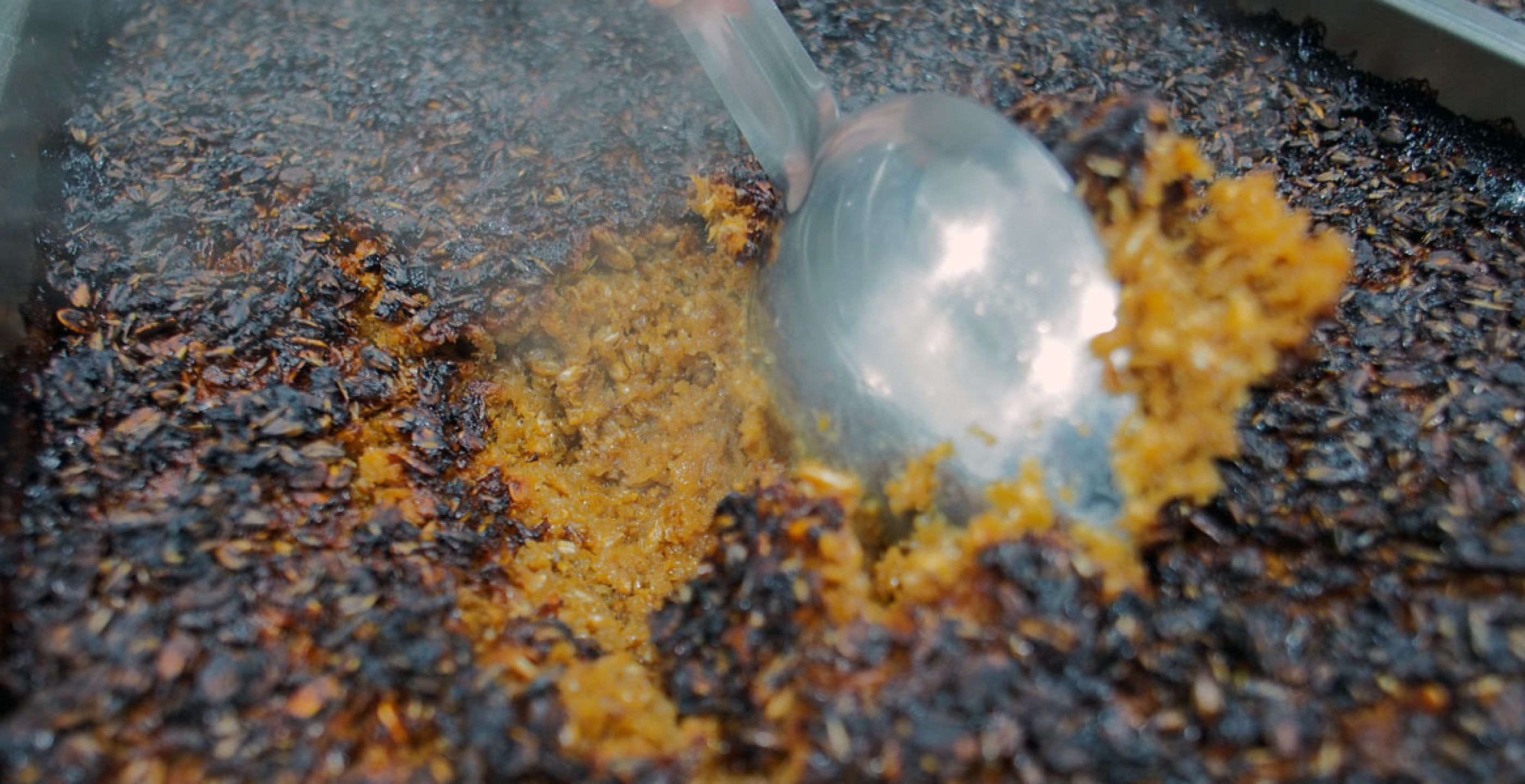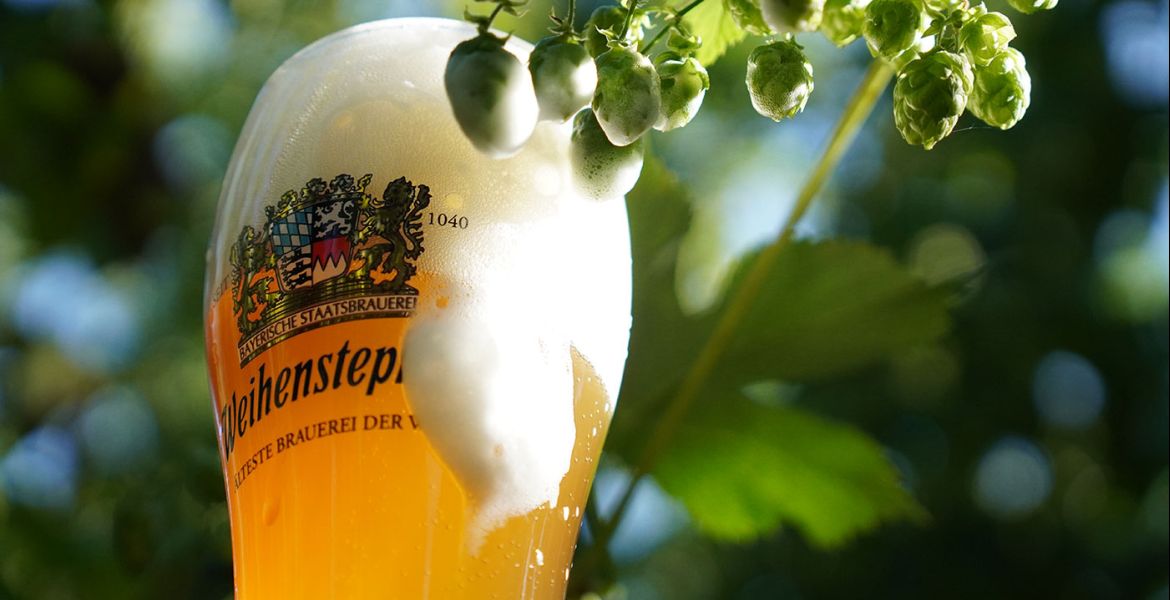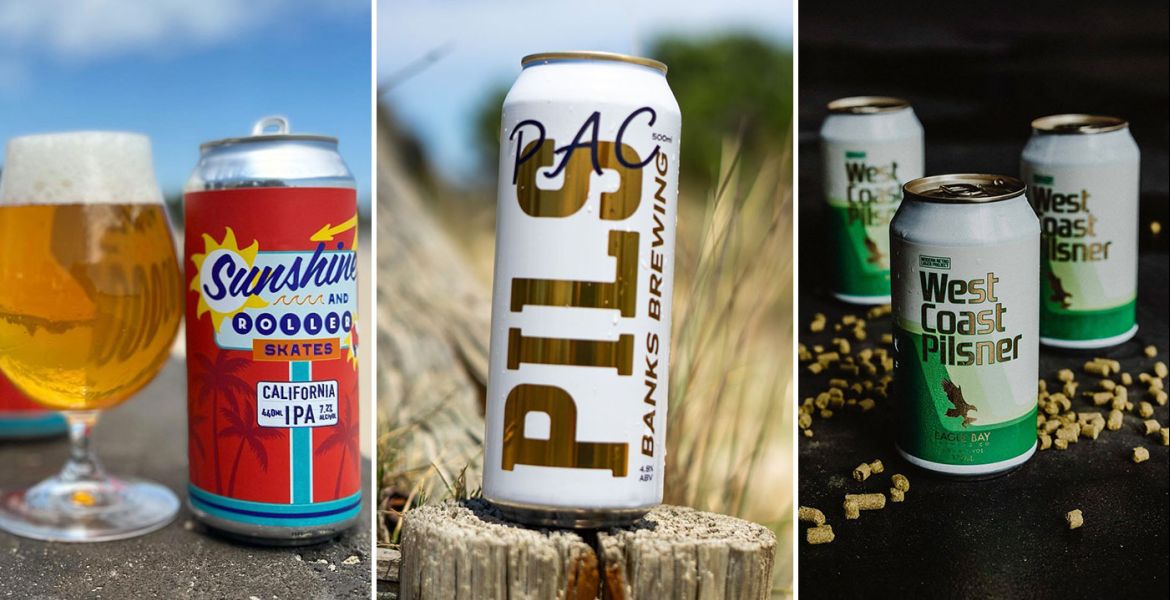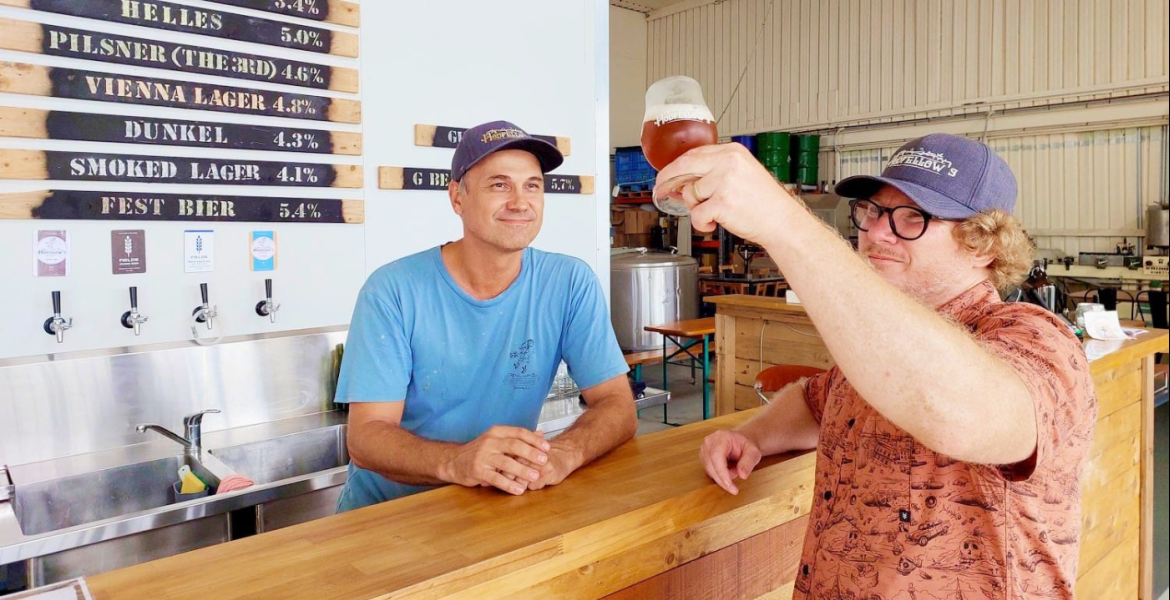Humans have been drinking beer in some form or other for thousands of years now. What was once served in a bowl and drunk through a straw to avoid floating malts has somehow morphed into grape bubblegum sours, chocolate croissant brown ales and custard tart stouts. Yet, just as it seems that every avenue of beer has been explored, here's another brewer looking to the beers of the past to bring us something new.
For Matt Glanville, head brewer at Brisbane's Fritzenberger, there’s always been value in studying beer's storied past.
“I’ve always had an interest in the history of beer, especially the things we used to do that we don’t do anymore,” he says. “Sometimes there’s a good reason that we don’t do it anymore, maybe we’ve found a better way of doing it. But there are other reasons too, and these are worth looking into.”
When Fritzenberger decided they wanted to take a chance on brewing something that would stand out in the current beer scene, Matt knew exactly what he would like to brew. The Lithuanian keptinis is a farmhouse style of beer that's unique in that it actually involves baking the mash so that a hard crust is formed. While using exclusively pale malts, this baking process creates rich toffee and caramel notes that would typically be found in darker beers.
Inspired by Norwegian beer historian Lars Marius Garshol (who we interviewed for our features on kveik), Matt soon formed a recipe and used the Fritzenberger oven to create a pilot batch. Pleased with the results, he made a plan to create a larger batch, a plan in which he’d have to enlist the help of local bakery, Flour & Chocolate.
“I’d walk past there every morning on the way to the train and they do really good pastries and sourdoughs.” Matt says. “When we realised we needed a bakery, they came to mind. I sent them an email and literally five minutes later I got a phone call saying, ‘Yeah. cool, let’s do it.’.”
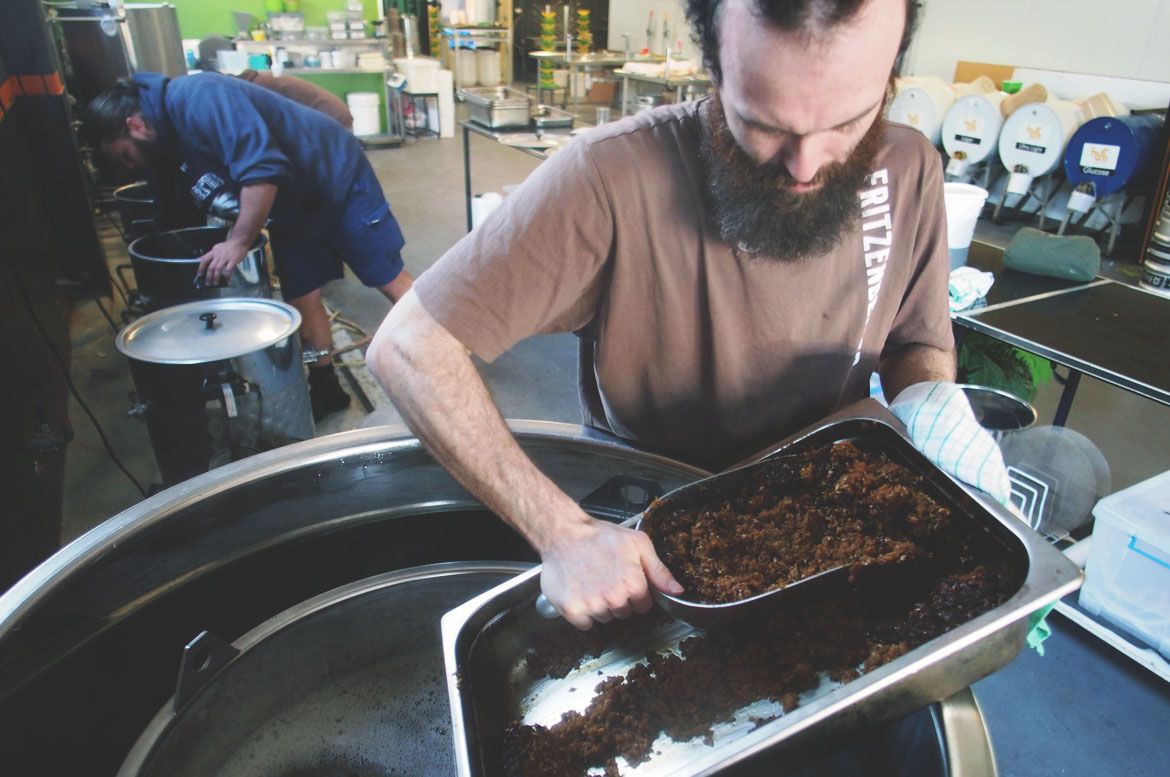
“The logistics were kind of fun. We had limited space at the bakery, but luckily my assistant has a large brewing space at his home. We actually got up at five in the morning and mashed in the back of a hire van we had and then drove that to the bakery, so it was mashing during the drive.
"When we got there, we added the oats, scooped it all into the big baking trays, and then carted it into the bakery on trolleys and chucked it into their three ovens.”
In keeping with the rustic and community feel of the beer, Matt made use of Flour & Chocolate’s sourdough culture. The three commercial ovens were able to bake enough mash for 200 litres or four kegs.
“I can’t imagine what you’d have to do to do a 12-keg batch. You’d probably have to dig a big pit oven.” Matt says, adding that oven space wasn't the only difficulty: the baking process created a particularly viscous brew which slowed down the brewing process.
Challenges aside, brewing the keptinis was about more than a beer for Matt: it was about a philosophy. A philosophy that involves making use of what is available to you, while preserving methods that have almost been lost to time.
“A lot of the farmhouse beers were brewed using what equipment they had around, what ingredients they had available,” he says.
In this respect, Matt aspires to bring the farmhouse to the brewery, to embrace ancient methods in a New World way.
“It’d be cool to try to do a Queensland saison using spent sugarcane in the mash and using fresh press juice in the ferment," Matt says. "I’ve found examples in Belgium and France of using straw and hay in the mash as well as wheat, so it’d be cool to see what we could do locally with what’s around.
“A lot of it is like peasant cuisine – food that’s survived through history. We don’t eat the way the lords and ladies used to with suckling pigs laced with gold, but we keep to what’s available.”
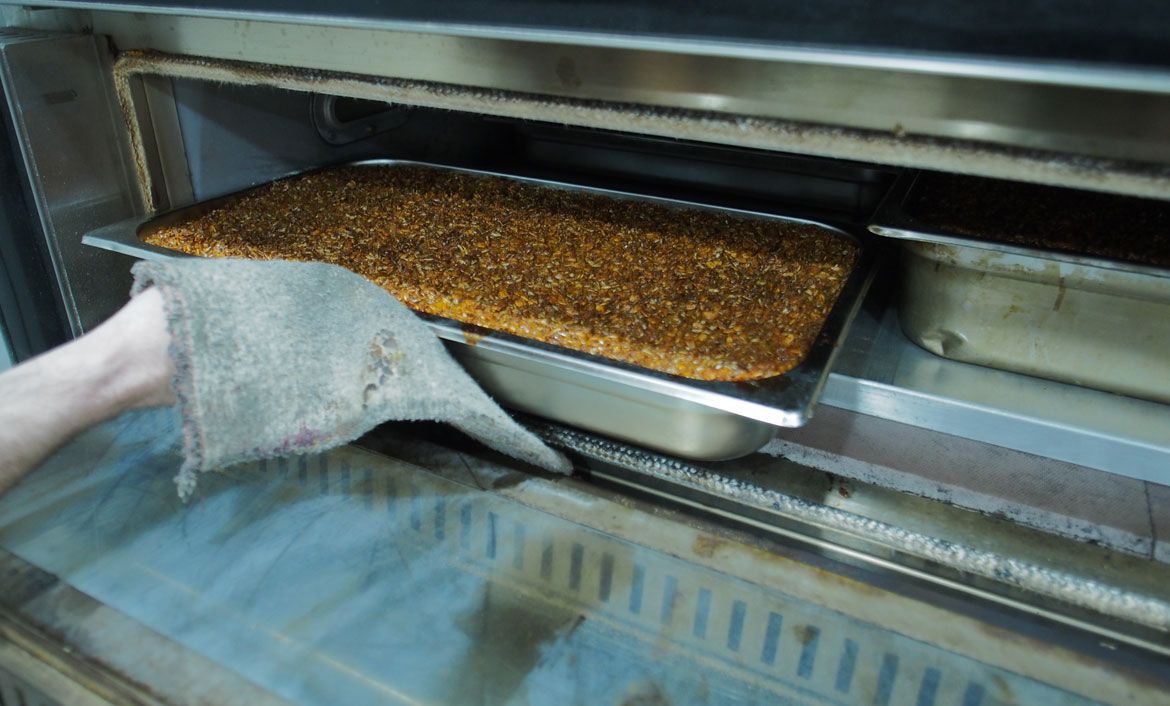
As to how his experiment turned out, Matt is more than happy.
“It’s so cool getting that really malty character using nothing but pale malt," he says. "You get all the caramel and toffee amber ale / portery characteristics, but it’s just pale malt. If this goes well, we might even make this an annual winter release and engage the local Lithuanian community to make a night of it.”
As for what's next on his wish list, Matt's hoping to brew a traditional kveik beer.
“I actually haven’t seen a traditional one," he says. "I want to try one and to see exactly what it tastes like before something else is done to it, like a kveik IPA. It’d be cool to try it with some Australian natives to find something equivalent to juniper.”
The Lithuanian Keptinis is certainly a beer that will stand out among the array of IPAs, NEIPAs and other hoppy beers hogging tap points these days. A truly malt driven beer, it’s unique in both its production and its flavour.
While many breweries are pushing the limits of what beer can be, it’s reassuring to know that some brewers are reflecting on what beer has been, in terms of ingredients, methods and philosophy. For Matt, it’s a passion and a way of thinking.
“It’s about adopting a farmhouse mentality: what can we make with what we’ve got?”
The Lithuanian Keptinis is available at Fritzenberger’s brewpub on the corner of Caxton Street and Petrie Terrace from September 11, 2019, for as long as it lasts.

